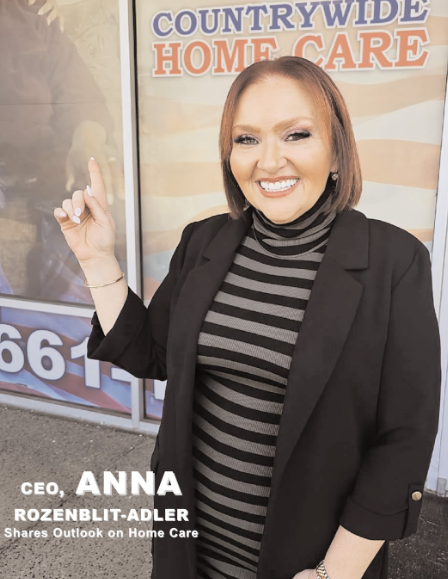
In the heart of South Jersey, Anna Rozenblit-Adler stands as a remarkable example of resilience, compassion, and purpose. As the founder & CEO of Countrywide Home Care, a premier agency rooted in community service, Anna has transformed personal hardship and immigrant beginnings into a powerful mission to uplift others. From launching a successful business dedicated to the care of elderly and disabled individuals, to feeding thousands through food drives and guiding young people into meaningful healthcare careers, her story is fueled by a deep love for people.
In an exclusive interview with the nation’s premier faith-based and professional newspaper for winners, Anointed News Journal, Anna opens up about her journey, her family, and the driving force behind a growing movement that’s more than just home care.
Collins:
Who is Anna Rozenblit-Adler?
Rozenblit-Adler:
Well, that’s going to take a little while. Who am I as a person? How do I see myself? I’m a mom first and foremost to three amazing boys. I have a 25-year-old who’s finishing law school in May. A 22-year-old who’s finishing his first year of grad school at Penn State. And a 16-year-old who is currently at a DECA competition—he won the first part of it, so hopefully, he’ll be going to nationals. It’s a business competition, kind of like Shark Tank, but for high school students. So, number one: I’m a mom.
Number two: I’m a community leader, a community builder. I’m not just the owner of Countrywide—I am Countrywide. I’m a daughter to two amazing parents who are immigrants. I’m an immigrant myself. I came to America when I was five years old. And I’m a woman. I’m a fantastic friend.
Collins:
So, Anna, you mentioned you’re the owner of Countrywide. Tell us a little bit about what Countrywide is.
Rozenblit-Adler:
Countrywide is a home health care agency. We provide services to people in the community who are disabled and elderly—people who want to stay in their homes and live on their own terms. We help them stay at home longer, prevent hospitalizations, avoid nursing home placements, and stay independent for as long as possible.
Our services include assistance with all activities of daily living: helping people shower, maintain hygiene, do laundry, light housekeeping, run errands, grocery shop, manage medications, and provide physical support such as transfers. We have many clients who are bedbound or have no family and still choose to live independently in their homes. We help them accomplish that.
Collins:
So, Anna, you are a community builder. You have a natural love for people. Why Countrywide? What motivated you to go into this area?
Rozenblit-Adler:
Okay. So, I got my master’s in social work from Rutgers University. While I was studying, I was trying to figure out how I wanted to help the world. At first, I thought I wanted to work with children, specifically adolescent females suffering from post-traumatic stress disorder. I started in that field, but I quickly realized it wasn’t my calling.
Ironically, the one population I never thought I’d work with was the geriatric population. But as fate would have it, that’s exactly where I ended up. Even back then, I realized that working with children wasn’t the right fit for me. I found myself drawn more to geriatrics, and I ended up working at a medical adult daycare. And I loved it.
I discovered that the changes I could help make were visible almost immediately. I guess I like immediate gratification. I could help someone and see the results. From there, I started helping others in the community open their own healthcare businesses. I worked as a consultant, helping to open home care agencies, medical daycares, hospices, ORFs (Occupational Rehab Facilities), physical therapy offices, and more.
Every time I helped someone open a business, they’d say, “Anna, will you be my partner? You don’t even have to invest any money—just run the business with me.” I always said no. I was happy to help but wanted to keep moving along.
Eventually, the medical adult daycare I worked at was sold, and I found myself without a steady income. As a single mom raising three boys on my own, I asked myself, “What am I going to do?” I ended up at the same company that had bought the daycare. They also owned a home care company. I had never been interested in home care, but I was already there, so I figured I’d give it a try—and I loved it.
What I didn’t love was that every time I wanted to do more for our community, my hands were tied. The person who owned the company was only interested in profit. So, when I wanted to do something extra for our aides or clients, I couldn’t. I realized I needed to do something better for the community.
I was raising three young men. I wanted them to see that this isn’t the end—that their mom is a strong woman who can make things happen, and that they, too, can make a difference in the world. A few things happened around that time. My oldest son left for college. I didn’t take it well—I really missed him. I ended up in the hospital, and there I met a doctor who asked if I’d be interested in opening a home care agency. At first, I said no—I don’t create competition for myself. But later, I thought about it more seriously.
That’s how Countrywide came about. It became my opportunity to create a home care agency for our community—one where I could meet people’s needs as much as possible, without anyone stopping me. Now I can do the things I always wanted to do, even if they aren’t officially part of home care services.
Collins:
So, did you see that there was a need lacking among the demographics that you serve?
Rozenblit-Adler:
Absolutely. Not just among the demographics I serve, but also among the people who come to work in healthcare. Many of the aides who enter this field are minimum wage employees, most of them completely uneducated, just looking for a way to make a little money so they can move on to something better. And those are our forgotten people—people who work incredibly hard for very little, cleaning others, caring for them in their homes, and receiving almost nothing in return besides a small paycheck.
That’s who I wanted to take care of. Because by taking care of the aides who care for our clients, we’re actually improving the care our clients receive. When our aides go to work happy, our clients are happier.
Collins:
I’m glad to hear that, because I come from a background as an instructor for workforce development. Oftentimes, it seemed like an easy route for people who may have low self-esteem or low motivation to become a home health aide or CNA. What do you say to individuals who enter this field, to motivate them to pursue something higher?
Rozenblit-Adler:
That’s a great question. And it’s a really important part of who I am. People come in and say, “You look so nice, you drive a nice car, you own this business. You must be rich—you can’t relate to me.” But I can relate to every single person who walks through these doors.
I was born in Russia. I came to America as an immigrant when I was five years old, in 1979. Not just an immigrant—but a refugee. My parents had college and master’s degrees, but when they got here, their degrees were useless. They didn’t know English. There were no cell phones, no GPS. Their degrees were like toilet paper here.
My father, with a master’s degree in engineering, went to work as a car service driver in Brooklyn and also worked in a nursing home doing maintenance. My mother worked at Katz’s Delicatessen—if you’ve heard of it, really good sandwiches—as a cashier. She also did nails in a men’s salon in New York.
Before we left for America, my grandmother told my mom, “Forget everything you know and forget who you are. Learn a skill. Learn to work with your hands, because the moment you get there, you’re going to need to work.” And that’s exactly what they did.
So when people come here, I can motivate them because I am them. I understand them. I love them. I love them with my whole heart, and I love being a part of their growth. I believe in them—over and over again.
A lot of the people who come here come from broken homes or families that don’t support them. But I believe in them until they find success. And that success might mean being able to buy a car to get to work. I’ll help them. I’ll drive them. It might mean moving from an apartment to a townhouse, or from a townhouse to a house.
We’ve had women who lost custody of their children and were able to get them back because we believed in them, gave them support, and helped them create an environment where they could succeed.
Collins:
Wow.
Rozenblit-Adler:
And that’s just it.
Collins:
Remarkable. That’s the word that comes to mind—remarkable. I’m also excited to hear that your parents are still with you. How important is it to you, knowing the struggles they went through, that you’ve accomplished your dream? I’m sure they’re extremely proud. How does that make you feel?
Rozenblit-Adler:
Oh, it’s amazing. I’m so happy to be able to make them proud. My parents are unbelievable people. They are the core of who I am and the values I hold. The children I’ve raised—I couldn’t have done it without my parents and who they are.
They’ve retired from all their previous work and businesses. But even after retirement, they became certified home health aides—and they now work for me.
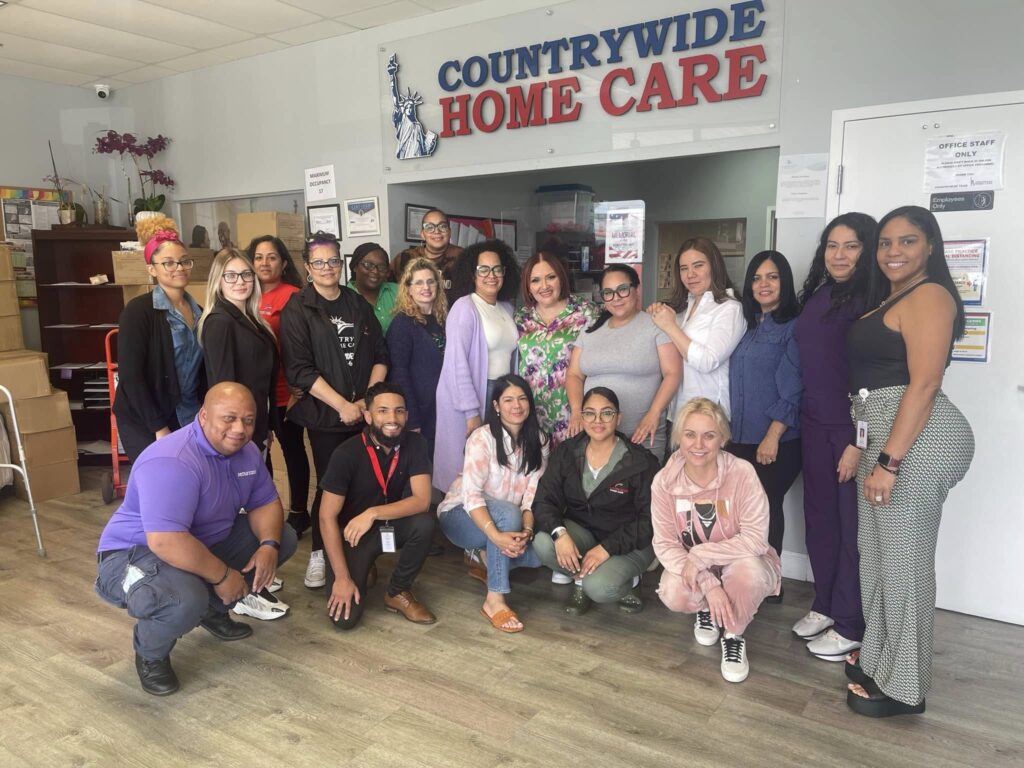
My father, at 75, works with four or five clients. Two of them are bedbound. One time, he fell and broke his knee. We were trying to place his client with someone else, and I asked one of my staff, “What does this client need?” She said, “Well, he’s about 260 pounds and needs to be transferred from the bed to the wheelchair, from the wheelchair to the shower, then back again.” I said, “And Boris does that?” She said, “Yep. He says it’s easy. But no one else can do it.”
The other day, my dad was with a Holocaust survivor—most of his clients are Holocaust survivors. Though he’ll work with anyone, anywhere. He’ll drive two hours to get to a client. He doesn’t care.
The other day, the client fell. I asked, “Dad, are you okay? Is the client okay?” He said, “Yeah. I dove so he landed on my arms instead of the floor.” I said, “Dad, you’re on blood thinners, and you just had seven broken bones from a previous fall. Are you okay?” And he said, “It’s nothing.”
True story. You can ask my coordinators who the best aide is here—and they’ll tell you it’s my father. My mom’s a close second—she just complains more.
Collins:
Fantastic. So, at what point should a family consider acquiring home health aide services?
Rozenblit-Adler:
I think that’s a two-part question. There are families who consider acquiring home health services, and then there are individuals who have no family at all.
For families, it’s usually when they feel they’re starting to struggle with day-to-day tasks while caring for a loved one. What they need to understand is that home care can truly save a family. A lot of families that call me are already overwhelmed—caring for their own children while also trying to care for a parent or relative. They’re calling out of work frequently, and their lives are being affected. That’s when they should really consider home care. We can help them keep their loved one at home, while still allowing them to live their own lives.
Now, for individuals living alone without family, they need to consider care when they start thinking about their future. Do they want to end up in a nursing home? Or do they want to stay independent at home for as long as possible? As soon as those questions start coming up, or if hospitalizations start becoming more frequent, it’s time to look into home care.
It can start out small—maybe six hours a week of light housekeeping or just having someone there while they shower, to ensure safety. But that small amount of help can make a huge difference.
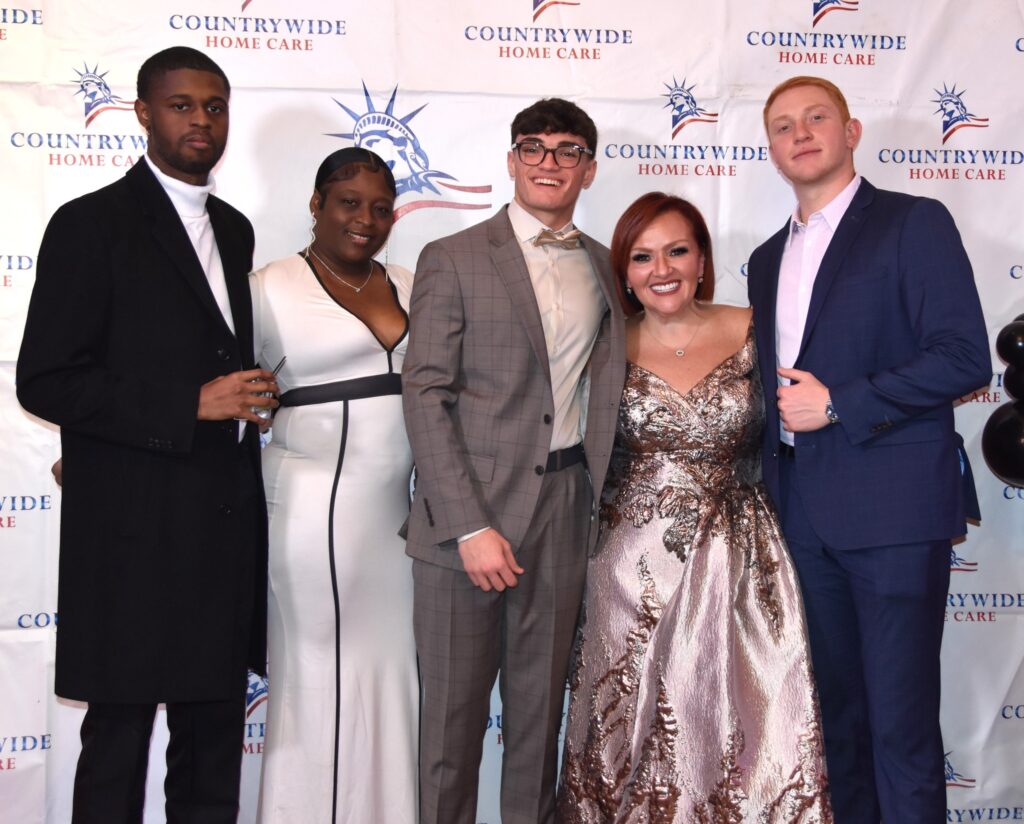
Collins:
How do you manage the attitude of a client when the family knows they need help, but the client feels they can still handle everything on their own?
Rozenblit-Adler:
It’s tough. That’s a really good question, and it happens a lot. It requires teamwork. Our approach is to show the client that we’re not there to take away their independence—we’re there to help them keep it. We’re not there to do everything for them. We’re there to assist, to be present, and to help them continue doing what they want to do.
Clients often feel intruded upon. Sometimes they’ll ask the aide to leave. But we work through that. It really does take a village. The family needs to be involved. My coordinators, community liaisons, and marketing team will go to the client’s home, sit with them, and talk. We ask, “How can we make this easier for you?” I’ll go myself, rain or shine. I’ll talk to people, hold their hands, and help them understand that we’re not there to invade their space—we’re just there for them. Once they understand that, once we find how we can be useful to them on their terms, things usually fall into place.
Collins:
All right. So, I know these services aren’t free. Let’s talk about how someone can support their loved one with these types of services. What’s required?
Rozenblit-Adler:
In the state of New Jersey, for people who have Medicaid, it’s covered. We accept all Medicaid plans—Horizon, United, Amerigroup (now Wellpoint), WellCare, and Aetna.
We also work very closely with the Jewish Federation, and we serve Holocaust survivors through them. Additionally, we partner with Senior Citizens United Community Services (SCUCS). Many people don’t know about SCUCS, but they’re an excellent organization supporting seniors in our community. They have grants and funding available for people who don’t have Medicaid but still need help.
The catch is that the grant is for caregivers who need a break—called “respite care”—not for the client directly. So, if you’re taking care of someone full-time and need relief, you may qualify.
Collins:
Okay, and break down that word for me—respite?
Rozenblit-Adler:
Yes, so respite means temporary relief for the caregiver. For example, let’s say Henni is the client, and you’re his father, taking care of him full-time. You need a break. The respite services would be for you, the caregiver, not the client.
Collins:
Okay.
Rozenblit-Adler:
So if you call and say, “I’m caring for my son and I need help,” SCUCS will review your finances and your situation. If you qualify, they’ll provide support.
We also work with the JACC program (Jersey Assistance for Community Caregiving )—that’s kind of in between SCUCS and Medicaid. While SCUCS provides around 6 to 10 hours per week, JACC can provide 10 hours or more, and they work on helping clients pre-qualify for Medicaid.
We’re also trying to work more with the DDD (Division of Developmental Disabilities) population. We’re open to that and have started receiving referrals. We partner with Rowan University Hospital, Walmart, Cooper, Osborn, the Kroc Center, and Hispanic Family Services.
As far as private insurance goes, we work with John Hancock and Genworth long-term care insurance. Those are fantastic policies, and a lot of people don’t even realize they have benefits available through them.
Lastly, there’s private pay. That’s $33 an hour during the week and $35 an hour on weekends. We require a minimum of 10 hours per week.
Collins:
You talked about your team—your staff. Tell us a little bit about them and some of the outreach initiatives you have going on.
Rozenblit-Adler:
My staff is the most phenomenal team on earth. Truly. They can’t be compared to anyone. They’ve been hand-selected to be part of my family because at Countrywide, we’re a family by choice.
That phrase—family by choice—came to me about five years ago. I was hosting our first large meeting after Christmas, and I was just so grateful for everything the team had done. I told them, “You choose to come here every day and do the hard work you do. And our clients choose us. Our aides choose us. We all choose each other. That makes us a family by choice.”
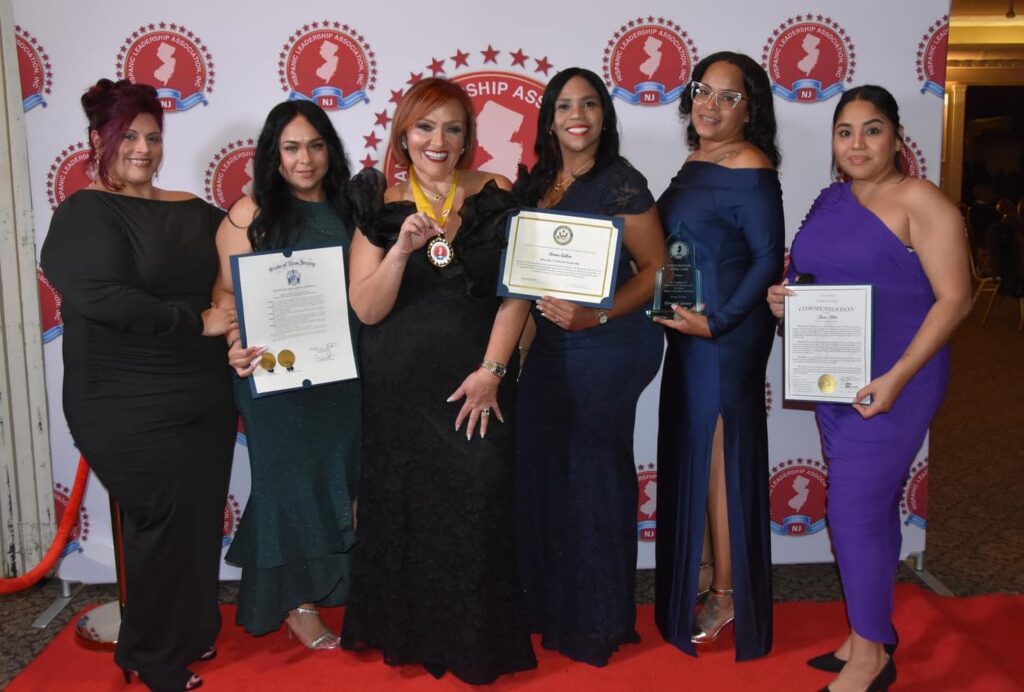
We have several departments. There’s our nursing department, with about 12 registered nurses—phenomenal professionals. Then we have Human Resources, which works tirelessly every day to help new people join our family. They assist with applications, skills assessments, license renewals, recertifications, and reinstatements.
We also have a billing and payroll department that communicates regularly with our aides. And of course, we have our coordinators—an incredibly important team. They’re the heart of the company. They’re the matchmakers. They pair aides with clients and try to find the perfect match so those relationships can last. No one wants different people in their home every day—they want consistency. Our coordinators make that happen.
They’re also the ones who handle the chaos when 15 to 30 call-outs happen in a single morning. According to state law, home care is not considered an emergency service—so agencies don’t have to send replacements when someone calls out. But we do. We restaff every single case, no matter what.
And then there’s our marketing and community liaison department. Honestly, Countrywide doesn’t need marketing—we’re a premier agency and provider. We’re number one in South Jersey and the top provider for Horizon New Jersey Health, which is our largest contract. I’d say 85% of our clients come through Horizon.
So marketing isn’t about selling—it’s about education. My team educates the community on what they’re entitled to and helps build the relationships that allow us to serve people better. Henni has played a huge part in that. He and his amazing team have been everywhere—building relationships, partnering with me, with Zulaikha (who’s been with me since day one). They’re continuously developing trust in the community.
Collins:
How many locations do you have, and which counties or areas do you serve?
Rozenblit-Adler:
We currently have four physical locations: Vineland, Clementon, Camden, and Pennsauken. We also operate virtually in Burlington County, where we’re looking for a physical office now. And we’re about to expand north—that’s still a little secret!
Collins:
And how can someone acquire your services—do you have a website or contact information?
Rozenblit-Adler:
Yes, here’s how to reach us: If someone is a provider—like a doctor’s office—they can send a referral by fax or call us directly. The number is 856-661-1000. That’s the main line. The receptionist can help with any county and will direct the call to one of our liaisons.
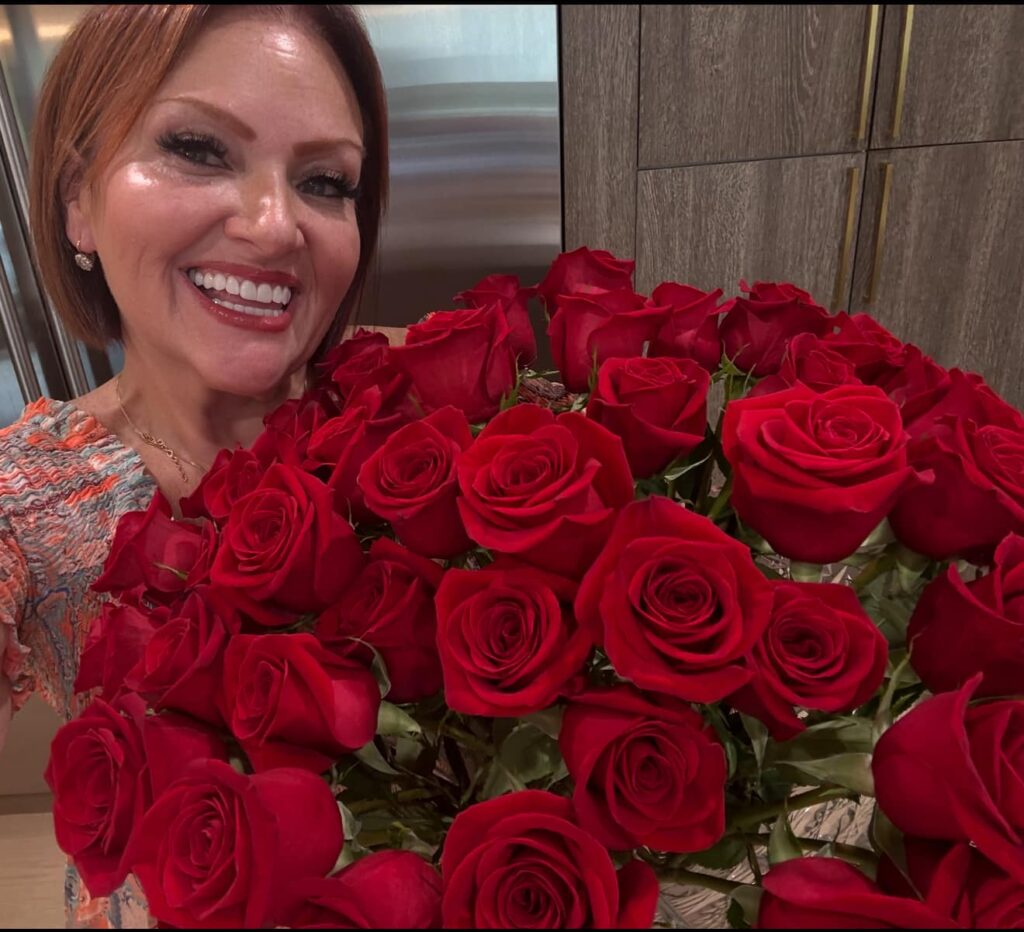
For family members, just call that same number. We also use Google Forms—the links are on our brochures, accessible via QR codes.
Another way is through a case manager. If someone already has a case manager through their insurance, they can just let them know, “I’d like Countrywide Home Care,” and the case manager will reach out to us.
Collins:
And the website?
Rozenblit-Adler:
It’s CountrywideHomeCare.com. There’s a simple form people can fill out—just name and phone number—and someone from our team will call them. Both aides and people seeking care can use the form.
Now, I do want to mention a few additional things. So, the way that Countrywide takes care of the community goes far beyond just home care. I mentioned earlier—we do a lot more than that. We have a food bank. Every fourth Tuesday of the month, we give out between 4,000 and 11,000 pounds of food. If anyone wants to come volunteer—great for those in politics too—you’re welcome to join us (at your own risk, of course).
We hold it right here at the Pennsauken location:
5287 Marlton Pike, Point Plaza, Pennsauken, NJ 08109.
We’ve been doing this since we opened. It was one of my biggest goals. Even though people may be working or receiving benefits, times are still hard, and a little help goes a long way. I’m very determined to make sure my clients are fed.
Growing up in Russia, I remember what it was like to open a refrigerator and see nothing, to walk into stores and see empty shelves. Even though I was only five, that stayed with me. Food is a big thing for me. I always feed everyone. Feeding my aides and my clients helps me sleep better at night.
We also do Toys for Tots in partnership with the Marine Corps. This past Christmas, we gave out over 2,000 toys across all four of our locations—Pennsauken, Vineland, Clementon, and Camden. And that brings me to something important—the reason I opened the Camden office. Even though it’s only a mile from our headquarters, I love Camden. I felt that if I truly cared, I needed to be present in Camden—not just talk about it from Pennsauken. I needed to be there, see the change, and be part of it.
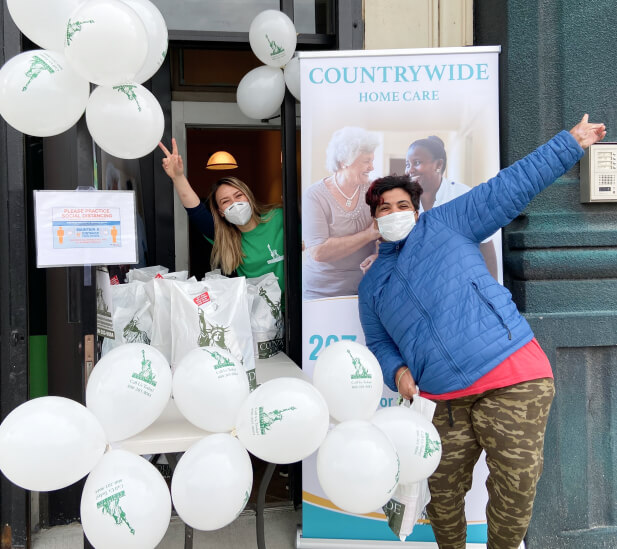
We also do a backpack drive—we gave out over 500 backpacks this past August to kids in the community.
Another major thing we do—and it’s probably the biggest challenge—is transportation. One of the greatest needs I saw is that even when people want to work, they often can’t get there. So right now, we have five vehicles that we use to transport aides to work at no charge—as long as we see that they truly want to work. If I have clients in areas that are hard to staff, I’ll get those aides there myself.
We’re constantly trying to solve every social services gap we can. I’ve had case managers call me and say, “Can you set them up with pharmaceuticals?” Or, “They’re getting meals from Mom’s Meals but don’t have a microwave.” So—we bought them a microwave. Why give someone frozen meals with no way to heat them? What are they supposed to do—thaw them in the sun?
This business is not about making money. It’s about truly making our community—a small part of this world—a better place. And while it started with wanting to show my children that their mom could do more, it has become so much more than that. My children have had a good life, even though they’ve come from a broken home. I’ve always tried to give them everything—even when I had to work four jobs to do it. And they’ve always appreciated it and wanted to help however they could.
When each of them turned 18, they became certified home health aides. I wanted them to start from the bottom—to learn to cook, clean, and help someone who really relies on them. My oldest, who’s finishing law school now, hated the job. He’d say, “Mom, I can’t do this.” And I’d say, “Leon, you can do it. You will do it. And one day, you’ll thank me.”
Last year, he was looking for a legal internship—very hard to get these days. He interviewed at a medical malpractice insurance firm, and they saw he had worked as a home health aide. They asked him to tell some stories. He said, “I was 18, I walked into this man’s home, and he asked me to shower him. I almost died. But I did it. I told him how he could help me so I could help him.” Leon got the internship because of that experience. And now, before even passing the bar, he already has a job offer—and he’s accepted it.
Benjamin, my middle son, should have been a college senior this year. But he got into an accelerated master’s program early because of the experience he had working with us. He used it in his application essay. So now he’s in grad school a year ahead of schedule.
Even though they may have hated working as aides when they were 18, they did it. They learned from it. They understood the purpose. They are such a big part of what I do and why I strive to do it. Benjamin actually opened the Clementon office on his own. He found the location, hired the staff, ran trainings, handled marketing. He and Leon are now opening a school in Cherry Hill—for certified home health aides. Hopefully by May or June, we’ll be launching it.
Be a Part of the Story.
Every article we publish helps shine a light on the people and movements making a difference. Your support helps us keep these stories free and accessible for all.
Join our mission — support independent, uplifting, community news.
💛 Donate now
And my youngest—he can’t wait to start working here this summer. He’s already working with Henni, helping with social media, marketing, design—he even made his own business cards and branding.
Collins:
That’s good. Let me just interject—what I’m hearing is that, especially in the urban market, people often think becoming a home health aide is an easy job. But what I’m really hearing is that it takes a special kind of person, and that this is a real career path—something for people who want to pursue a meaningful future taking care of others.
Rozenblit-Adler:
Absolutely. You’re 100% right. And there’s one thing I didn’t mention that I’d like to add: we help people go through the schooling. I give out scholarships. We work with a school right now, and we probably send 20 to 25 people per class, sometimes more.
We help them get through the 76-hour course, support them with transportation, help with payment if needed, and guide them through fingerprinting and licensure. And when they finish, there’s a job waiting for them. That’s why we’re opening our own school—to bring that whole process in-house and expand what we can offer.
Collins:
Fantastic.
Rozenblit-Adler:
Yes—and we actually purchased the Old Bear’s Chocolate House building, right next to Cooper on Route 70. That’s where our Pennsauken office is moving because we’ve totally outgrown this space. It’s bursting at the seams!
The school is a huge part of our mission—encouraging people to get out of their homes and into the workforce. We’ve worked with housing programs, high schools, and other organizations. The goal is to show people that this is a stepping stone.
You can go work at McDonald’s or Walmart—nothing wrong with that. But if you have a drive to care for people, and maybe want to become a nurse or an LPN, start as a home health aide. Go into someone’s home. Learn what it really means to care for someone.
Because it’s better to take a two-week course and find out this career path isn’t for you, than to go to school for four years, only to realize you can’t do it.
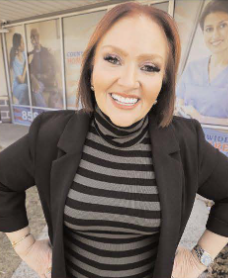
Collins:
So it also serves as a feeder program into healthcare careers?
Rozenblit-Adler:
Exactly. It helps people understand whether they want to continue in healthcare. We get a lot of nursing students. And personally, a lot of my friends send their kids to me. They say, “Anna, make them work. Teach them something.” Because so many young people today are in college but have never worked a day in their lives.
Here, they learn responsibility. They learn reliability. They learn how to care for someone else’s life—and to feel the weight of that responsibility. And that’s a good thing.
Collins:
Anna, the Anointed News Journal has over 180,000 readers weekly. In conclusion, what do you want to say to the readers of Anointed?
Rozenblit-Adler:
Let me think, considering everything we’ve talked about… Countrywide is a family by choice. We would love to meet you, to have you join us, and to help you learn more about what we do.
What I really want people to know is: nothing is impossible. As long as you have a goal, everything you do—every step you take—can bring you closer to it. Just keep going. Don’t give up. Keep thinking about your next step and work on it. And most importantly, our community needs to take responsibility for each other. When we do that, things will get better.
When I left the company I’d been with for 17 years to start Countrywide, I thought it would take six months to get started. But then COVID hit, and what usually takes six months took two and a half years. That’s part of our story—and part of our success. Even though we’ve only been operating for about three years, we now have over 1,500 home health aides and have served over 2,500 clients locally.
All my life, I’ve worked for the community. I give, give, give—whether it’s my heart, my time, or a job. That’s who I am. But two years ago, something tragic happened that changed my life. My house burned down. I was out walking my dogs when my 65-pound poodle pulled me back toward the house. That’s when I saw the flames. My 14-year-old son was inside—in the shower. As I ran toward the house, all I could think about was getting my child out. And I did. The house burned down, and I lost everything in it—but I had my children, and I had myself. We were alive.
The last two years have been incredibly difficult. I rebuilt the house on my own—without a partner. And believe me, I’ve always seen myself as a girly girl. I had to figure out things like electrical socket placement and insulation types—but I got through it.
And I only got through it with the help of my community, my aides, and my staff. They showed up for me and my children. People came to clean, to help me sort through the remains, to decorate my rental with pretty things just to lift my spirits. Others brought food, clothes, even offered to drive my kids.
It’s hard for me to receive—I’m better at giving. But one of my aides said, “It’s a gift for us to be able to give back to you.” And I understood: by receiving, I was helping them too. That is my family, that is Countrywide.
Collins:
Anna Rozenblit-Adler has turned personal trials into a purpose-driven life, building a home care agency that reflects her deep compassion and unwavering commitment to community. Through Countrywide, she has created not just jobs, but a movement of empowerment, dignity, and hope for both clients and caregivers. Her story is a testament to the power of faith, resilience, and choosing to serve others with intention and love.
By Chris Collins


Recent Comments